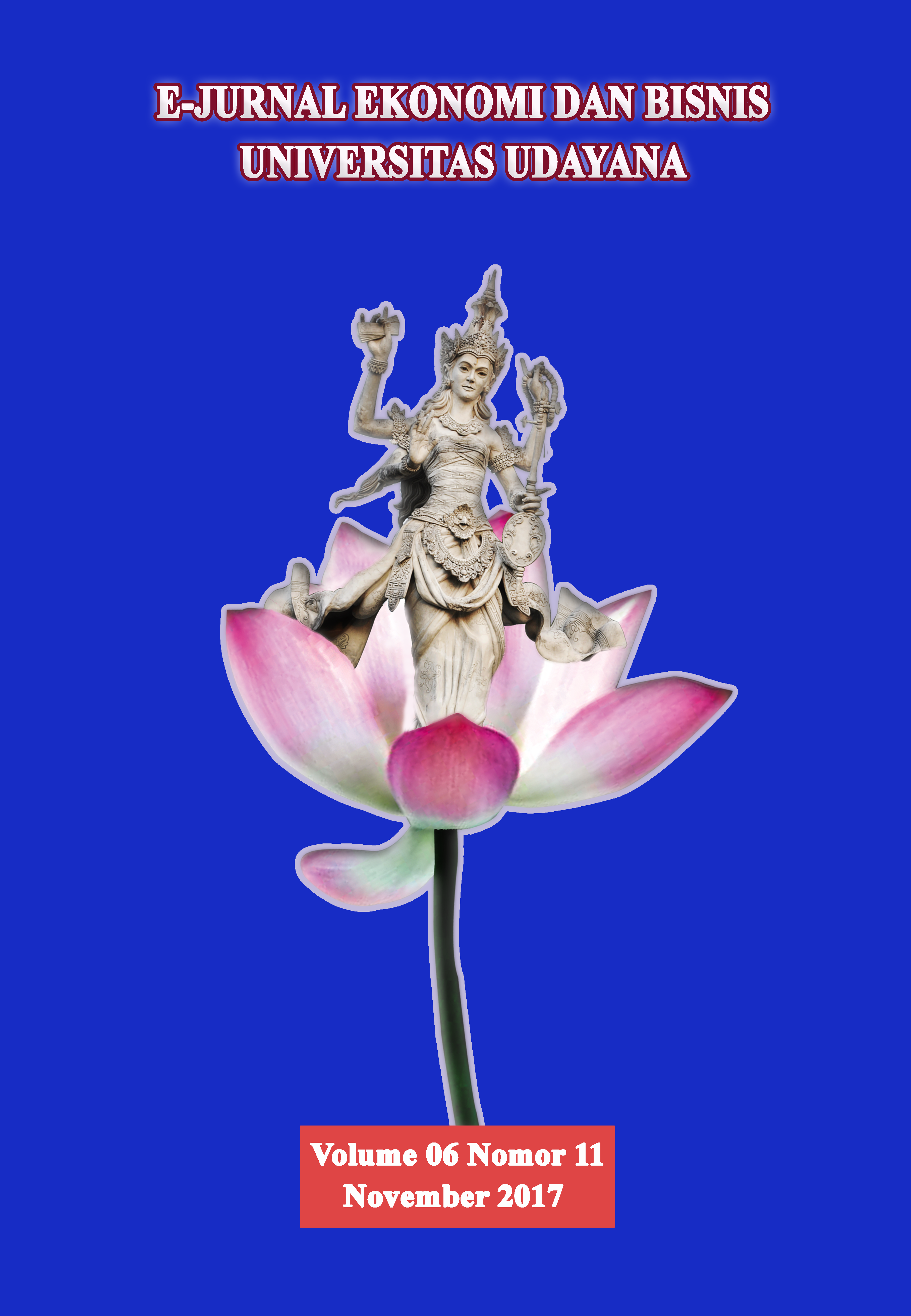Analisis Overreaction Saham Winner - Loser Pada Perusahaan Indeks BISNIS - 27 Di Bursa Efek Indonesia
Abstract
This study aims to analyze the existence of overreaction of stock market winner and loser on the index companies of BISNIS -27 of the Indonesia Stock Exchange.The study is a comparative study by using secondary data. The sample determination was done by purposive sampling method. The number of population was 27 companies and the samples obtained after selection were 25 companies listed in the index of BISNIS-27 of 2016. Of the 25 companies there were 14 stocks classified as winners and 11 stocks classified as losers. The research used abnormal return as the research variable. Abnormal return was obtained from the difference between actual return and expected return. The method used to calculate the expected return was market model. The statistical test used was independent sample t-test, to test the average difference of abnormal return winner and the average abnormal return loser.The result of the research based on hypothesis testing showed that there was no statistically significant overreaction on the companies listed in the index of BISNIS-27 throughout 2016, which was indicated by the abnormal return of winner stock consistently larger than the abnormal return of loser stock significantly.


















